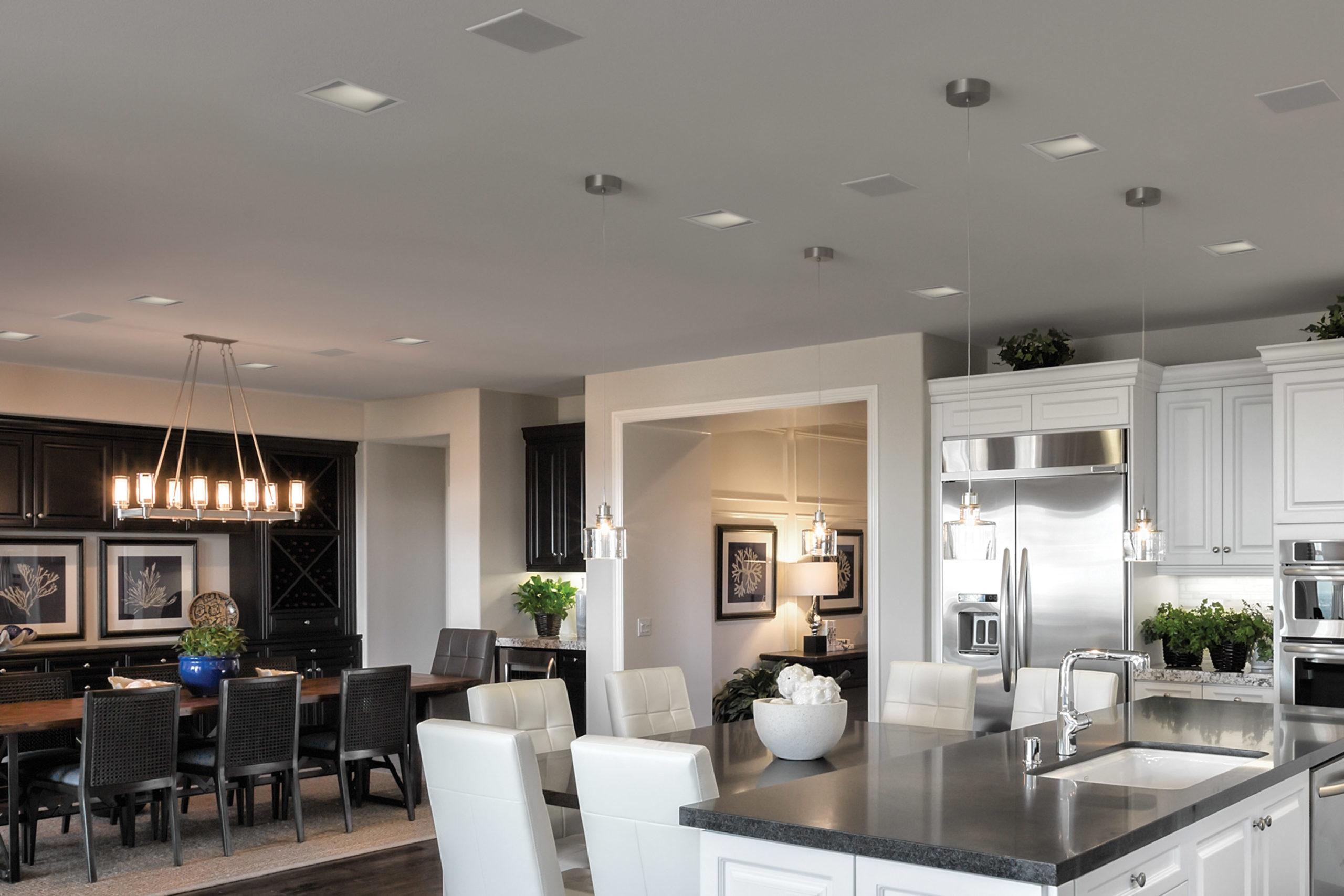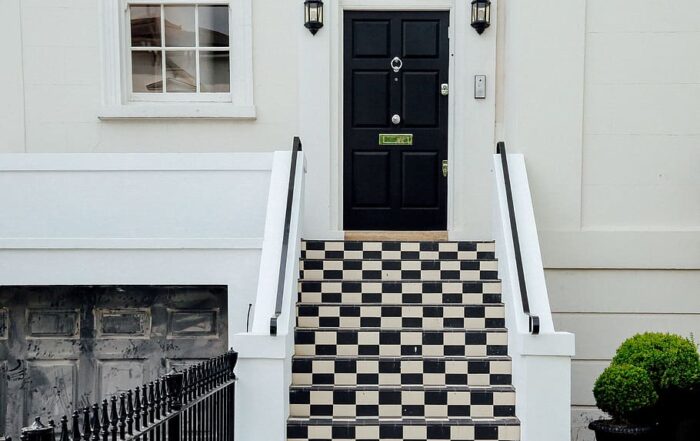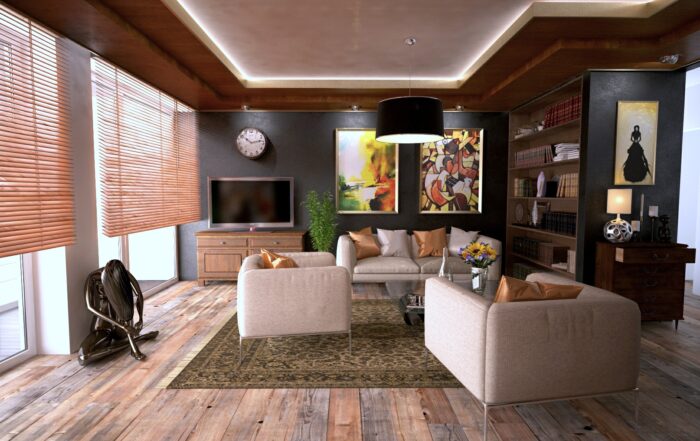
How Home Automation Is Transforming the Rental Industry
Date Posted:
February 25, 2022
Share This:
Today’s home buyers have vastly different requests than they had a few decades ago, especially in terms of automated products. Having virtual assistants or using verbal commands to perform tasks (such as turning lights on and off) was previously limited to the homes of the rich and famous.
However, as automated product solutions become more innovative and affordable, smart homes are increasing in popularity.
In essence, a smart home is a home that has automated technology in virtually every room. But this technology extends far beyond virtual assistants such as Google and Alexa. It integrates with networking systems, which allow devices to communicate with one another and an end user.
Smart homes have features that give you control of the home from anywhere in the world. This means you can receive notifications about your living space and make decisions such as locking your doors, turning off lighting and adjusting internal temperatures via a mobile device, desktop computer or tablet.
Benefits of Automation in the Rental Home Industry
Property managers and rental homeowners benefit tremendously from smart home systems because automated technology is designed specifically to make life at home as convenient as possible. Smart home systems reduce logistical overhead, improve security and offer valuable amenities for renters and those managing shared living spaces.
Increases Rental Value
Domotics (i.e., home automation) and the Internet of Things (IoT) have gained traction in recent years because of their many advantages. A growing number of property owners and rental homeowners are now installing automated features in their residential buildings.
Plus, real estate listings are typically ranked by the amenities offered in rental homes. The more amenities a rental property has, the higher its value is. This plays a major role in determining how much the rental will fetch on the market.
According to Chad Curry, managing director of the National Association of Realtors (NAR), a smart home earns 5% more than traditional homes in the same neighborhood. Renters are interested in modern, sleek and exciting amenities that grant seamless control of their living spaces.
Investing in cost-effective audiovisual (AV) systems, home automation systems and smart gadgets improves the attractiveness of your property listings and thus boosts their value.
Provides Real-Time Data and Analytics
Integrating smart devices into rental units gives property owners a powerful tool — data.
Managing a multiunit rental property is often challenging and complicated. However, modern smart home systems provide analytical insight for your team to make better financial decisions.
Real-time data provides intel on where you can cut costs, increase revenue and improve tenant satisfaction. For example, you can monitor alarms and security cameras in your buildings to improve safety measures for tenants. Or you can also learn where to reduce electricity costs in, for example, low-activity communal areas.
Improved Security Measures
Smart home automation helps operations run smoothly for those who manage numerous residential rental properties.
Smart residential AV technology has greatly improved security access control and monitoring. One of the first upgrades to invest in when improving your property is an upgrade from traditional locks and keys. Smart locks are easier to manage (and keep track of) than conventional keys, and they are more convenient for tenants.
Home and property owners also benefit from investing in security cameras, alarm systems, smoke detectors and sensors to protect their assets. Sensors alert you of unauthorized access or attempted break-ins, as well as other concerning security issues.
Offers Tenants Convenience
The most significant benefit of smart home technology is convenience. Most people are willing to pay top dollar for upgrades that make their lives easier. Smart technology allows residents to control their basic amenities, such as washing machines, air conditioners and entertainment systems, from anywhere.
Similarly, advanced smart device features help manage the costs associated with air conditioning and heating by setting limits on HVAC systems to prevent abuse or neglect by guests and renters. Routine maintenance also streamlines automatic notifications and alerts for your smart system.
Additionally, newer system platforms allow users to connect all devices to their smartphones, which eliminates the need for multiple switches and remotes. Installing smart products is a great way to attract families and tenants who prioritize convenience, comfort and security.
Appeals to Millennials
The millennial market is a leading driver when it comes to technology in the real estate industry. They’re enthusiastic about environmentally conscious technology, so they’re attracted to spaces that save energy while providing convenience.
According to a 2017 survey, 86% of millennials say they would pay more for a home or rental property that has smart technology. But more specifically, they’re willing to pay up to 20% more per month to ensure their home has smart technology.
Millennials also prefer having devices that are interconnected and integrated into the natural progression of their home’s construction and building process. Therefore, adding smart gadgets, such as Lutron automated shades, makes your rental property more attractive to a younger, tech-savvy crowd.
[Related: Why You Should Work With a Contractor and Architect Early on in Your AV Project]
Reduces Downtime Between Rentals
The current real estate landscape is highly competitive, so it’s important to find innovative ways to differentiate your listings.
One way to do so is to upgrade your smart technology.
Per a 2015 Coldwell Banker Real Estate survey, 40% of U.S. real estate agents believe homes with smart technology sell faster than those without. This same preference applies to rentals. Smart devices such as thermostats, security cameras and lighting give your property an edge and help it rent faster once it hits the market.
How to Get Started
There are thousands of ways to automate your space, but here are the top three factors:
- Monitoring — the ability to observe the state of an environment while it’s interconnected with smart devices (e.g., smart thermostats that measure room temperature)
- Control — the ability to change the status of an environment (e.g., smart lighting that automatically switches off light bulbs)
- Automation — the ability to change the state of a system in response to an event (e.g., automated shading that opens and closes based on the weather)
A great smart home system typically uses a hub to carry out these three functions while also connecting devices to one another. This ensures all your automated home products work in sync.
Here are five must-have smart gadgets that are often used together to achieve an optimal system:
- Smart speaker with a built-in virtual assistant
- Smart doorbell
- Smart smoke detector
- Smart thermostat
- Smart security camera
Frequently Asked Questions (FAQs)
How Do I Pick Which Smart Features to Implement?
The first step in implementing smart features into your home involves identifying areas of concern and determining your home goals. If your goal is to increase the rental value of your property, installing a specific smart home system package is an ideal route. This includes services such as high-performance audio, climate and lighting control.
However, if you want to bolster certain areas such as security and surveillance, the best place to start is a consultation with our custom design team.
Are Home Theater Systems Crucial to a Rental Property?
Home theater systems enrich any space’s entertainment experience by providing an immersive environment that appeals to a wide range of consumers.
A home theater system can also upgrade a property to luxury status, significantly increasing its rental value. When deciding whether to install a home theater, weigh the installation costs against increased rent from tenants (and thus more revenue).
[Related: Home Movie Theater Ideas: Your Ultimate Guide]
Can I Upgrade Parts of My Existing System?
Yes, you can!
Technicians can complete home automation upgrades in batches to suit your unique conditions and timeline. You can also integrate stand-alone gadgets and accessories into your smart home system over longer periods.
How Long Does It Take to Install a Smart AV System?
Installing an AV system takes a variable amount of time, depending on your project’s size and scope. On average, simple media systems take up to six hours to install, and custom projects require up to three days.
Contact AV Smart Solutions to Automate Your Home
If you’re ready to get started on your smart home system with help from professional AV technicians, contact AV Smart Solutions today. We’ll review your existing options and streamline a package that meets your residential needs and budget.
Call us at (425) 655-5052 or complete our inquiry form, and one of our team members will be in touch!


